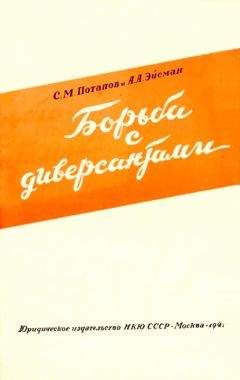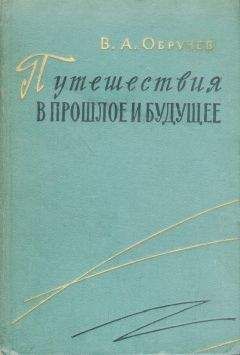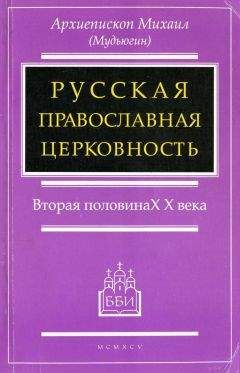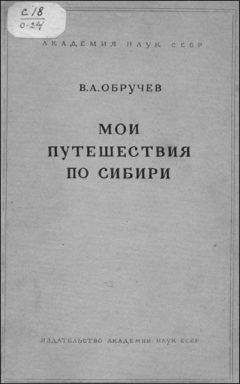В. Храковский - 40 лет Санкт-Петербургской типологической школе
«I was then (in 1927) in Budapest trying hard to finish my thesis».
<…>Ses'an' menam möd n'el'uc'ki:
from.that I-GEN other blemish
«Because of that I made another error:»
menam komi jöztö, Komi mutö vyvti jona
I-GEN Komi people-ACC Komi land-ACC too strongly
idealizirujts'öma i
dealize-REFL-PERF-3SG
«It came out that I (had) idealized the Komi people and land too much».
Kritilgas gögörvoömaös': me pö c'olöm bytt'ö
critics understand-PERF-3PL I Quot greeting as.if
vis'tala komi kulakly, komi bedn'akly i
say-PRES-lSG Komi kulak-DAT Komi poor.people-DAT and
bydönly
everyone-DAT
«The critics seem to have thought that Iwas greeting the Komi kulaks, the Komi poor people and everyone».
Mees'kö ac'ym kösji žuny: stavudžalys' Komi jöz…
I maybe myself want-PST-lSG say-INF all working Komi people… «I myself would have wanted to say: to the entire working Komi people».
In the first case, the agent is not expressed, but the construction is impersonalł, thus the responsibility is to some extent hidden and avoided. The pluperfect with the copula völi has here apparently the same function as the past-in-past of the Western European («Standard Average European») pluperfect. In the second example, the reflexive suffix expressly removes the responsibility of the author, the event just happened without his volition. The objects are retained, as is shown by the morphological markers. In the third example, the authorship is shown, but again demoted by the genitive form, although the verb form is the perfect without the reflexive suffix. Thus it only shows the resulting state. The critics' part in this is based on the result, and the perfect of the verb «understand» has a clear evidential meaning: the critics must have understood the author's words in a certain way. The author tries to avoid their interpretation by using the quotative particle pö. The last predicate in the simple past kösji «I wanted», shows what the author did intentionally and in full consciousness.
5. The possessive construction and the question of transitivityThe impersonal constructions based on the participle — öm(a) are, as was noted in the beginning, neutral. One of the fullest descriptions of Komi from the XDCth century states:
Das Passiv kann zwar durch eine besondere Classe der abgeleiteten Zeit-wörter ausgedruckt werden, die Verba Media, aber diese können auch reflexive, sogar active Bedeutung haben. Deutlicher und zugleich fehlende Zeitformen ersetzend ist die Umschreibung mit dem ersten und zweiten Tempus des Zeitworts «sein» und dem aus lony (werden) für dasselbe ge-wonnenen Future, verbunden mit dem siebenten Verbalnomen auf — ma <…> Das erste Tempus des Zeitworts «sein» kann als Copula in affirmative Sätzen natiirlich auch fehlen <…> gižöma (es ist geschrieben), <…> em-bur kod' hod yb vylyn dz'eböma völy «Wie ein Schatz, welcher auf dem Felde vergraben war» [Wiedemann 1884:201].
That is, there is no formally marked passive in Komi, and the analytic constructions with instrumental agents that appear in grammars are obvious loan translations from Russian (E. A. Cypanov in [Fedjunjova 2000: 282]). In earlier grammatical descriptions, e. g. [Lytkin 1955], such constructions are claimed to represent genuine Komi passive forms. The tradition has been faithfully continued until today, and has taken root in modem written Komi (see e. g. [Ludykova 1993]).
As in the historical development of languages with habere perfects, a predilection of the possessive impersonal construction to be used with transitive verbs is apparent in Komi, at least with respect to the frequencies of transitive and intransitive verbs. With transitives, it is often difficult to decide whether the genitive should be interpreted purely as the possessor of an item, or as the agent responsible for the action; it can be both. P. Doronin, a prolific writer who began publishing in the 1930s used the construction with transitives, verbs both with and without an object. In all cases, the interpretation as an evidential is possible, since it often coincides with the basic meaning of the forms with — oma, that of a state resulting from an event/action in the past:
Jenlön es'kö koz'nalöma taj menö ydžyd
God-GEN maybe present-PERF3SG PRTCI-ACC great
vyn-ebösön, <…> strength.strength-INSTR
«God must have given me a lot of strength <…>» [Doronin 1995: 68]; texts from the 1930s reprinted.
Another example shows the verb «work», which is certainly active, but hardly transitive:
Tydalö, Mikollön tadzsö udžalöma
appear-PRES3SG Mikol-GEN thus-ACC work-PERF3SG
«It seems that Mikol has worked in this way» [Doronin 1995: 87].
In the context, the father is inspecting the ploughing done on his field. Dissatisfied, he draws the conclusion that his son must have been at work. The adverb tadz «thus» is suffixed with — sö, marker of 3rd person singular definiteness and accusative, is also used in Komi as an emphatic particle, comparable to the Russian — to. The suffix — sö marks definite objects, while indefinite ones remain unmarked:
To, pac'yn mon'ydlön rys' kašn'ikjas
there oven-iNESS daughter.in.law-POSS2SG-GEN curd cheese.pots
s'ujalöma
put-PERF-3SG
«There, your daughter-in-law has put curd cheese pots in the oven» [Doronin 1995:17].
In the following example, the construction can hardly be interpreted as evidential, conjecture or hearsay; it simply reports on the appearance of a person. The meaning of state becomes very clear due to völi:
Sylön völi jurs'isö šyröma<…>
s/he-GEN was hair-ACCDEF shear-PERF-3SG
«He had had his hair cut <…>» [Doronin 1995:131].
In early fiction, there are some cases of the construction with intransitives:
Mel'nic'ayn udžaligön kymynys' sylön tatc'ö
mill-lNESS work-GERUND how.many.times he-GEN here
volyvlöma völi, kymynys' pukavlöma so
come-FREQ-PERF-3 SG was how.many.times sit-FREQ-PERF-3 SG this
esijö beregdorsa kydz' ulyn!
very river.bank birch under
«When working in the mill, how many times he had come here, how many times sat under this very same birch on the river bank!» [Fedorov 1955:128].
The writer in question shows in his production a fairly strong influence of Russian, which is noticeable to Komi language specialists. Whether or not this possessive construction is connected with Russian dialects or not, Fedorov shows during his long career (from the 1930s to the 1990s) a growing predilection for its usage. In the early stories (1930—1950s, [Fedorov 1955], 282 pages) there are only four cases of the possessive impersonal, the one above included, whereas in the prose of the 1990s ([Fedorov 1989], 165 pages), there are 16 cases.
To native speakers, specialists in the Komi language, intransitive frequentative verbs with the suffix — vl are quite acceptable when the situation refers to a repeated action in the remote past. One informant states that the essence of the usage with the genitive is to stress that the time is over, the action cannot continue in the present situation. Another example from modem prose shows that this idea is preferably supported by the adverb n'in «already».
Menam volyvlöma n'in te ordö!
I-GEN come-FREQ-PERF-3 SG already you to
«I have already been to your place!» [Juškov 1988: 75].
The context concerns the time after the revolution: a kulak asks a neighbour to come and see whether he really is a rich kulak, deserving punishment. The neighbour, who thinks that the speaker is an exploiter, gives the above answer. According to informants, he expresses his opinion that he had already visited the formerly wealthy man quite often enough. The common factor with the previous example is the finality of the situation: there will be no continuation. In this sense, the logically clearer resultativity inherent in the transitive constructions can be extended to intransitives. Figuratively speaking, the extent of the events is completed, the subject is not involved any more, and his past is an unchanging state now left behind.
Another case from modern prose shows an intransitive verb without the frequentative suffix. So far, only two cases of such constructions have been found, and one of them is rather doubtful. The first comes from the prose of G. Juškov, the most eminent living writer in Komi:
Mijan ta vylö i petöma! — virdyštlis s'injasnas
we-GEN this upon PTL come.out-PERF-3SG flash-PST-3SG eyes-INSTR
Bašlykov. — Byrödny okkupantjassö!
Bashlykov destroy-INF occupiers-ACCDEF
«This is why we are here! — Bašlykov's eyes flashed. — In order to destroy the occupiers!» [Juškov 1988:220].
The second example comes from the 1990s and actually represents a translation of a Russian text of a local Komi writer:
Bat'lön kytc'ökö munöma
father-GEN somewhere-to go-PERF-3SG
«The father had gone somewhere» [Gabova 1997:40].
In the context, the relevant passage is concerned with the absence of the parents who had left a child alone at home. Out of seven informants, four have so far rejected this construction as a mistake, saying that the nominative form should be used instead:
Bat' kytc'ökö munöma.
father-NOM somewhere-to go-PERF-3SG
Further two informants state that the verb form should be reflexive:
Bat'lön kytc'ökö munsöoma
father-GEN somewhere-to go-REFL-PERF-3 SG
«The father (it appears) had gone somewhere».
The seventh, a speaker of the Lower Vychegda dialect, feels that the genitive somehow creates a state and a distance better than the nominative. For instance, it would not be appropriate to continue talking about the father in the next sentence. For this speaker and the writer, the choice of the nominative probably signifies cancelling the prototypical feature of the nominative subject as a topic, shifting the agent into the background description. As the dialect of Lower Vychegda has for centuries been in contact with Russian settlers who spoke north Russian dialects, the genitive can be seen as a contact phenomenon.
On the other hand, similar phenomena (i. e. use of nonnominative primary NPs with participial passive predicates) is found in large parts of Eurasia. M. M. Sahokija, the focus of whose research lies in the Kartvelian languages and Iranian, even suggests a universal model, an «archi-system» and «archi-models», which point towards the idea of the monogenesis of human language [Sahokija 1998: 52]. Perhaps the term «prototypical» as applied to the functions of morphological forms marks a cautious midway between facts and theories.
Since there exists no research on the functions of the subject in Komi, final conclusions in this matter are inappropriate. The backgrounding function of the non-nominative can only be suggested as a hypothesis which needs to be confirmed by further research.
Abbreviations SourcesDoronin P. Parma s'ölömyn. Syktyvkar, 1995.
Fedorov G. Povestjas i rasskazjas. Syktyvkar, 1955.
Fedorov G. C'užan mus'an' ylyn. Syktyvkar, 1989.
Fedorov G. Börjöm gižödjas. Möd kn'iga. Vostym. Syktyvkar, 1994.
Gabova E. Vospitatel'nicalön kaz'tylömjas. Vojvyv kodzuv Nr. 1,1997.
Ill'a Vas' (V. I. Lytkin) Myj meds'a dona da musa. Syktyvkar, 1994.
Juškov G. Rödvuž pas. Syktyvkar, 1988.
Syrjänische Texte. Bd IV. Komi Syrjänisch: Ober-Vyčegda-Dialekt. Gesammelt von T. E. Uotila, übersetzt und herausgegeben von Paula Kokkonen. Mémoires de la Société Finno-ougrienne 221. Helsinki, 1995.
ToropovI. Me verma, bat'ö. Syktyvkar, 1988.
ReferencesBubrih D. V. Grammatika sovremennogo komi jazyka. Leningrad, 1949.
Fedina M. S. = Федина М. С. Имперсональность в коми языке: Автореф. дис…. канд филол. наук. Йошкар-Ола, 1997.
Fedjunjova G. V. (éd.). = Федюнева Г. В. (ред.). Комия язык: Энциклопедия. М., 1998.
Fedjunjova G. V (éd.). Önija komi kyv. Morfologija. Syktyvkar, 2000.
Fici Giustî, F. The perfect in Slavic // Bertinetto P. М., Bianchi V., Dahl Ö., Squartini M. (eds). Temporal Reference, Aspect and Actionality. Vol. 2: Typological Perspectives.T orino, 1995.
Guentchéva Z. (éd.). L'énonciation médiatisée. Louvain; Paris, 1996.
Johanson L., Bo Utas (eds). Evidential. Turkic, Iranian and Neighbouring Languages. Empirical Approaches to Language Typology 24. Berlin; N. Y., 2000.
Journal of Pragmatics. 2001. Vol. 33.3.




